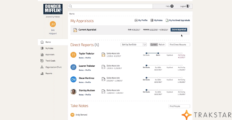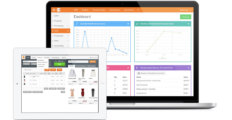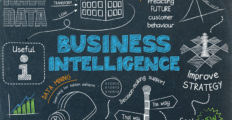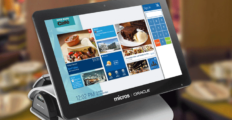In the ever-changing landscape of the hospitality industry, staying relevant means staying ahead. Which requires innovative strategies that utilise fintech to optimise the experiences of customers and clients. Three of the major areas in fintech/hospitality are dynamic pricing, smart financing, and data analytics, approaches that are developing within what has become colloquially known as ‘Hospitality 2.0’.

Dynamic Pricing
So, what is dynamic pricing? It’s a strategy that has been around for years, adjusting prices in line with demand. Raise and lower prices with demand, in turn generating a consistent revenue either way and helping manage sales in a way that keeps them higher even on slow periods.
This strategy enables hotels to price their rooms based on a wide range of factors in real-time. Whether it’s competition or varying customer levels, the flexibility that dynamic pricing enables allows hotels and other hospitality businesses to optimise their sales at any time.
How to implement dynamic pricing
- Demand levels: Optimising revenue requires flexible prices that adjust to the demand a business is currently getting
- Competition: Understanding the competition and staying educated on their pricing models means you can create strategies to offer better to your customers
- Calendar: Events like holiday periods, seasonal celebrations, and commercial events can lead to an increased demand for accommodation and an opportunity to capitalise
- Consumer segmentation: Consider offering different pricing for different customer groups based on purchase behaviour. Business analytics can help identify strategies
Leveraging data analytics can help hotels tailor their business approach to implementing dynamic pricing and constantly adjusting to the evolving climate of hospitality. The strategy isn’t to maximise revenue but to optimise it regardless of the circumstances.
Mitigating loss with subscriptions
Though dynamic pricing can present an obvious concern, lowering prices to entice customers might mean more consistent revenue, but it will also mean less. So, you might find yourself looking for a new consistent stream of revenue that won’t be subject to the effects of your new strategy.
That’s where subscriptions can help. Subscription-based payment models can allow hospitality providers to manage their business efficiently, providing a clear structure in their model with benefits for premium members and gaining a fixed stream of income from subscribers.
Integrating finance solutions like subscriptions will be a seamless process, too, as most fintech providers will be able to seamlessly integrate various solutions with the preexisting booking platform.

Smart Financing
A massive part of the responsibility involved in running a hospitality business is upgrading those properties, staying up to date on hospitality trends and affordably maintaining a modern business strategy. Traditional financing methods mean extended periods for approval and lengthy processes constrained by repayment conditions, in turn hindering a hotel’s ability to continue to progress in their upgrades at a rapid pace.
Alternative finance options can now be tailored to the specific needs of a hospitality business. These new options include revenue-based financing, which means repayments are determined by the hotel’s overall income, meaning the plan is more affordable and manageable for the business, especially during slow periods.
Key Benefits of Smart Financing
- Flexibility: With fully customisable plans, repayments can completely align with business performance
- Speed: Quicker approval processes mean that businesses can secure their funds at a rapid pace
- Accessibility: SMEs can particularly benefit from greater accessibility to finance options
Embracing these finance options means that hospitality businesses can consistently undertake the necessary funding they require for upgrades. This can include renovation of rooms, constructing new facilities, updating technology or enhancing preexisting amenities, in turn improving customer satisfaction and retention.
Working Together: Dynamic Pricing and Smart Financing
Finding a balance between these two tactics and managing to seamlessly operate both together creates a robust business framework that will equip hospitality businesses to thrive in the modern landscape of their sector. This means increased revenue, solidified financial position, bigger attraction with lenders, and increased customer retention with improved services and pricing. Coupled with solid content marketing abetted by an AI SEO writer to personalize content, dynamic pricing and smart financing gives you a solid foothold in the industry.
But while these tactics can have a great impact on the success of a business approach, it’s always important to be completely aware of the potential risk of any business decision. This includes the importance of data accuracy.
Data analytics are an invaluable tool to a business’s strategy, a clear and concise breakdown of business performance with detailed analytical capabilities will change how retailers view their operations. Retailers can redefine how they sell by understanding product performance, customer habits, and overall business success.
With a clear understanding of the customer base, retailers can pursue alternative marketing opportunities and strategies, targeting the customers with personalised advertisements that will drive them to purchase more. This will, in turn, generate repeat customers and a new consistent revenue stream. Wider marketing can also see a massive change, with the most successful products being pushed the most in adverts and the less successful products having a more thought-out strategy or reassessment.

Data: How data analytics are integral to Hospitality 2.0
Data analytics are an invaluable tool in the modern business framework, a clear and concise breakdown of how they performed with detailed analytical capabilities will change how retailers view their operations. Hotel owners can redefine how they strategise by understanding performance, customer habits, and overall business success.
With a complete understanding of the behaviour of their customers, it can be simple to pursue new marketing strategies that specifically target customers with specific needs. This can also lead to how a hotel might consider new upgrades, once the needs of customers have been grasped, it becomes tangible to ensure those needs are met. Clearly defined marketing strategies will generate repeat customers and change how they view a business.
And with the wide offerings of analytics tools at the disposal of businesses, this has never been easier. Fintech companies’ tools allow a unique perspective on payments and highlight key areas of interest, making business owners privy to trends and, in turn, generating a clear breakdown of key information. The financial health of a business is always clear with solid data tools.
Loyalty
Loyalty schemes, or customer loyalty, are strategic marketing initiatives that reward customers for consistent engagement with a business/brand. These schemes are both fantastic methods to increase customer retention and leverage data gathered from customers.
By gathering what is essentially a case study of the most loyal and interested customers, you, in turn, have complete insight into your target customer base. The behaviour of customers on loyalty schemes can educate a business owner on the aspects of the offering customers most want. As with so many aspects of the fintech sector, it’s never been easier to implement these options, and it can do wonders for a business’s retention.
The future of hospitality and fintech
As technology continues to evolve and the world of fintech with it, every business is affected and feels the pressure to keep up with these rapid changes. AI is an ever-rising business fear and opportunity, and the potential uses and integrations grow ever more sophisticated. So, Fintech is increasingly changing, offering more and more tailored and sophisticated solutions for the hospitality sector.
Proactively knowing the latest trends, strategies, and other emergencies means staying ahead and making a business well-positioned for the future. Hospitality 2.0 is a shift in the sector, but one that everyone can make themselves well equipped for by navigating the complexities of the sector and staying educated in both fintech and their sector.























Leave a comment!